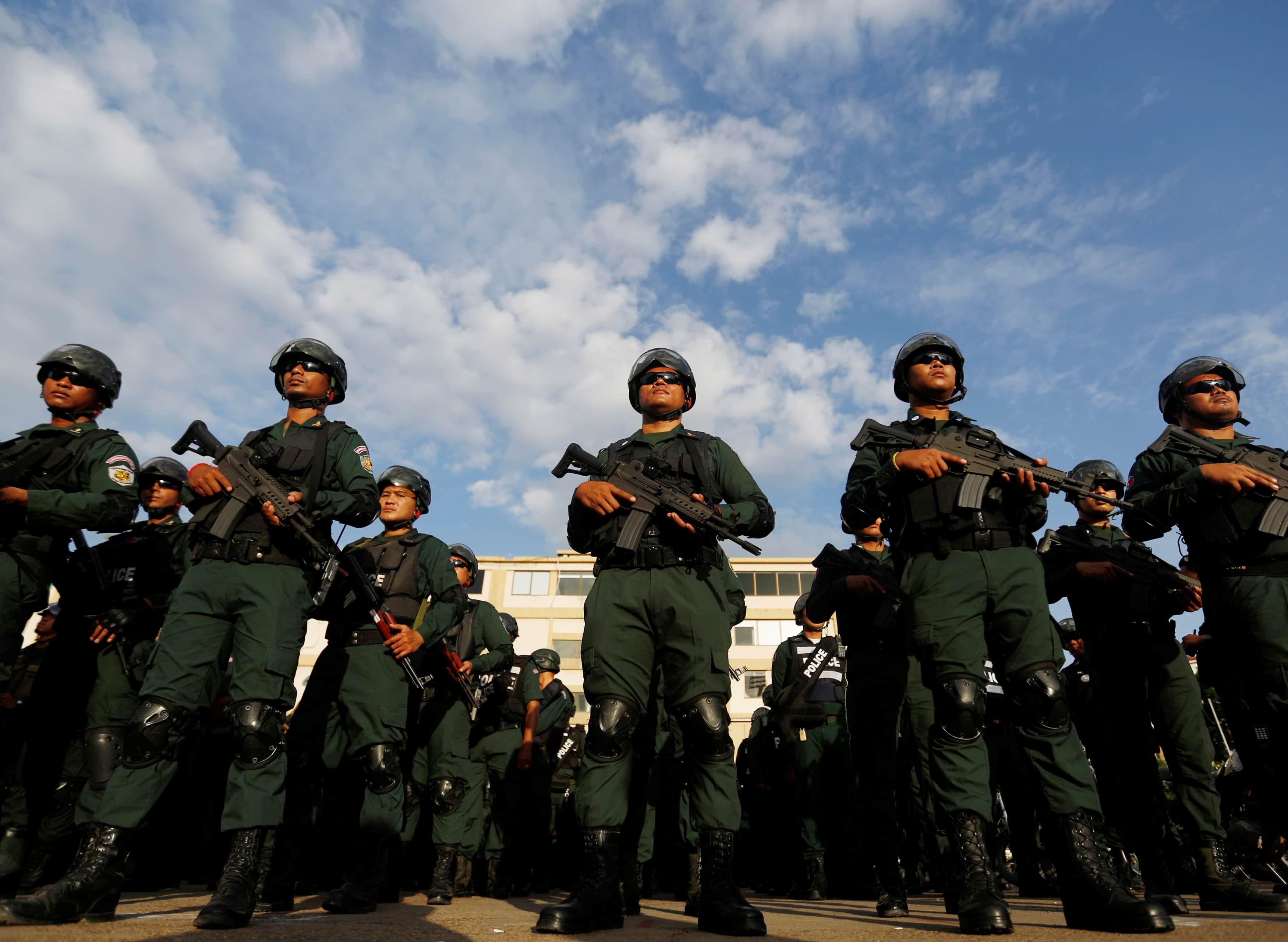On 29 July, Cambodians will go to the polls under the shadow of a relentless attack on critical voices. The IFEX network condemns these actions, which have deprived the election of all credibility, and calls for the full restoration of human rights and fundamental freedoms in the country.
IFEX condemns the serious and ongoing violations of the rights to freedom of expression, information and association in the lead up to the Cambodian national election set to take place on 29 July. Actions taken by the Royal Government of Cambodia (RGC), including the dissolution of the main opposition party, the shutdown of media outlets perceived as critical of the government, and the forced closure and deregistration of NGOs, appear to be a coordinated attempt to stifle all dissenting voices and legitimate criticism.
An independent media and a robust civil society are essential to support the plurality of voices needed for a healthy, democratic society. They are also essential for voters to be able to make informed choices. Some of the most egregious examples of the RGC’s crackdown in the last year include the shutdown and takeover of independent newspapers, the imprisonment of journalists, and the closure of many local radio stations in the face of government threats and punitive tax audits. Similar political and administrative harassment has plagued NGOs working on issues related to democracy and human rights, some of which have also been forced to close their doors.
In addition to the misapplication of administrative measures used to target the media, in June 2018 a new code of conduct for media covering the elections was released and has been heavily criticized for restricting press freedom and attempting to control election reporting. The code of conduct prohibits journalists from expressing “personal opinion or prejudice” or conducting unauthorized interviews at polling booths. It also bans the broadcasting of news that could cause “confusion and loss of confidence” in the election.
Cambodian citizens also face illegitimate restrictions on their right to free expression under broadly worded regulations that criminalize speech and grant the government far-reaching surveillance powers. Most recently, an inter-ministerial prakas on website and social media control ordered the Ministry of Posts and Telecommunications to “block or close” websites and social media pages containing content “considered as incitement, breaking solidarity, discrimination and willfully creating turmoil leading to undermining national security, public interest and social order”. Local groups have noted with concern that such an order can easily be used to arbitrarily censor any ideas considered unacceptable to authorities, including legitimate political opinion and dissent.
In addition to attacks on the media and civil society, the ruling party has ensured that no viable political opposition can participate in this election. In November 2017, the heavily politicized Supreme Court voted to dissolve the Cambodia National Rescue Party – the main opposition party in Cambodia. This followed the arrest and exile of several of its members over unfounded allegations that they were working to foment a “color revolution” to overthrow the government.
The RGC also recently introduced several amendments to the Constitution which severely curtail the rights to freedom of expression and association, due to an ill-defined ban on “any activity” that directly or indirectly “affects the interests of Cambodia or its citizens”. At the same time, the RGC also amended the Criminal Code to introduce a lèse-majesté offense, which was broadly condemned as incompatible with international standards of necessity, proportionality, and legitimacy, and which has already been used to arrest individuals for comments made on Facebook on at least two occasions.
Human rights defenders and journalists have also been targeted, including former RFA journalists Uon Chhin and Yeang Sothearin, imprisoned on ‘treason’ charges, and outspoken political commentator Kem Ley, allegedly assassinated two years ago. Over the past year the space for journalists and HRDs to peacefully exercise their rights has almost been extinguished.
We condemn the RGC’s silencing of critical voices, which has deprived this election of any credibility, and call for the full restoration of human rights and fundamental freedoms in Cambodia. In addition, we call on the international community to encourage Cambodian political leaders to reverse the recent decline in freedoms and ensure full protection of the rights of all Cambodian citizens.
“We condemn the Cambodian government’s suppression of press freedom and freedom of expression. How can any election be considered free or fair under such conditions? We stand with others around the world calling for the full restoration of human rights and fundamental freedoms in the country.” – Annie Game, IFEX’s Executive Director

